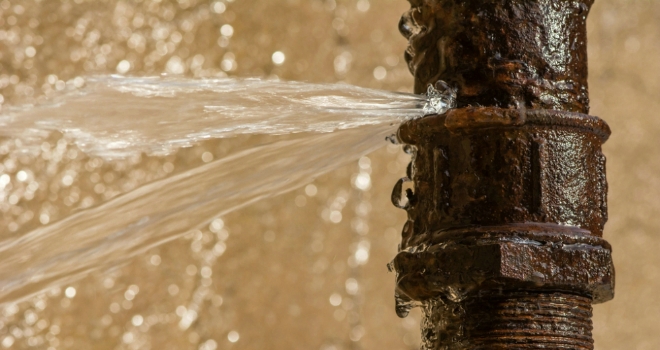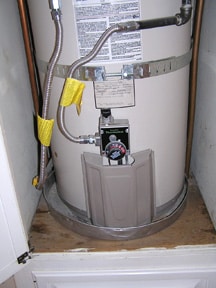This great article following next about How to Find and Prevent Water Leaks in Your Home is relatively enjoyable. Read it for yourself and decide what you think of it.

"Be careful of little expenses. A little leakage will certainly sink a wonderful ship." - Benjamin Franklin.
He couldn't have been more right since water leakages in our homes lead to a waste of resources, increasing our water expenses. Although this increase may appear minimal at first, it can cause substantial expenses that can damage your bank. Other than a rise in bills, water leakages likewise cause unwanted organic development, architectural damage, as well as even electrical threats.
If you have a water leakage isn't constantly easy due to being incapable to see many of the pipework in your home, figuring out. If you have had a boost in your water costs recently, noticed water discolorations on wall surfaces as well as ceilings, smelt poor smell, and so on. You could wish to consider asking for plumbing services to get it looked into.
There are a number of sources of water leakages, and we have compiled the common factors listed below. Examine to see if you have actually had related problems in your house just recently.
Clogged drains pipes
Food fragments, dust, and grease can trigger clogged up drains as well as block the flow of water in and out of your sink. Enhanced stress within the rain gutters can finish and also trigger an overflow up cracking or breaking pipelines if undealt with. To prevent clogged drains in your home, we recommend you to stay clear of putting bits down the tubes and also regular cleaning of sinks.
High water stress
You discovered your house water pressure is higher than common but after that, why should you care? It runs out your control.
It would be best if you cared due to the fact that your average water pressure need to be 60 Psi (per square inch) and although your home's plumbing system is designed to endure 80 Psi. A boost in water stress can place a stress on your house pipelines and also result in cracks, or worse, ruptured pipelines. If you ever before observe that your home water pressure is higher than normal, connect with a specialist concerning managing it.
Deterioration
As your pipework grows older, it gets weak as well as more prone to corrosion after the constant passage of water with them, which can eat away at pipes and create splits. A visible indication of deterioration in your house plumbing system is staining and although this may be difficult to identify due to the majority of pipelines hidden away. We advise doing a constant appointment every couple of years as well as change pipelines once they are old to guarantee a sound plumbing system
Weakened pipeline joints
Pipeline joints are the components of our plumbing system where the pipes link. It is important to keep in mind that even though pipelines are developed to endure stress as well as last for a while, they weren't made to last forever; for that reason, they would certainly degrade over time. An usual indication of harmed pipe joints is extreme sound from taps.
Busted seals
An additional source of water leakages in homes is broken seals of house devices that utilize water, e.g., a dishwasher. When such devices are set up, seals are mounted around water ports for very easy passage of water with the equipment. Hence, a broken seal can create leak of water when in operation.
With little or no understanding of plumbing, comprehending your home's plumbing system enough to repair a few of these issues (without effect) can be a headache. Contact plumbing experts in Pittsburgh, Providence, Rochester, as well as environ today, and also they'll make those concerns vanish.
He could not have been more best because water leaks in our houses result in a waste of resources, increasing our water bills. If you have had a boost in your water bills lately, saw water spots on ceilings and wall surfaces, smelt poor smell, etc. A rise in water stress can place a pressure on your residence pipes and also lead to splits, or even worse, ruptured pipes. One more cause of water leaks in homes is broken seals of home appliances that make use of water, e.g., a dishwasher. When such devices are installed, seals are mounted around water connectors for very easy passage of water through the equipment.
5 TIPS IN DETECTING A WATER LEAK IN YOUR HOUSE
Water leaks can be hard to find in your home, yet they can be so common. We rely on water every day in our home, which is why a leak can cause big problems. By detecting them early, you can save money and further damage, getting the problem fixed as soon as possible. Here are 5 tips to help you detect a water leak in your home, so you can contact a plumber straight away and get the issue sorted.
Check your water meter
Many people underestimate the value of the water meter in their home. It can be one of the best ways to tell if you have a leak early on, so you can get on top of it before issues start arising. Start by turning off all the water in your home: taps, washing machine, dishwasher, etc. Now take a look at the meter – if it’s still changing with everything turned off, it’s likely you have a fast-flowing leak that you need to get on top of straight away. If nothing changes, then leave your meter for an hour or two and come back to it. Did it change in this time? It’s likely you have a slower leak, which isn’t as urgent but still handy to get fixed so it doesn’t become a bigger problem.
Keep an eye on your bill
Another good way to detect a leak in your home is by keeping an eye on your water bill. It helps if you have a past bill from the same period of time. You can compare like for like and determine whether your water usage has increased significantly. If it has, there may be a leak in your system that you haven’t picked up before. A professional plumber can check through all of your pipes and determine where it is coming from.
Look for damage
If you have a leak inside your home, you will notice damage over time. Take a look at your showers and bathtubs and note whether any of the tiles surrounding the area seem to be discoloured or damaged in any way. There may be water stains, mould or peeling material that has resulted from a build up of moisture over time. Make sure you take a look under sinks at the back of cupboards that don’t get accessed regularly. This is where damage can go unnoticed and build up over periods of time.

Do you enjoy more info about How to Find and Prevent Water Leaks in Your Home? Make a comment down the page. We will be glad to find out your views about this write up. We are looking forward that you visit us again in the near future. Do you know anybody else who is fascinated by the niche? Take a moment to promote it. Kudos for your time. Please visit our website back soon.
Clogged drain? Phone!